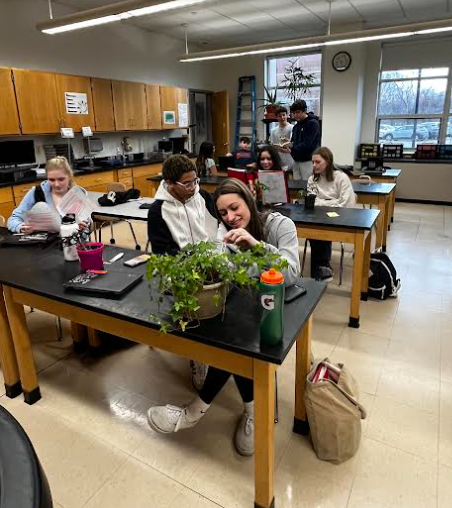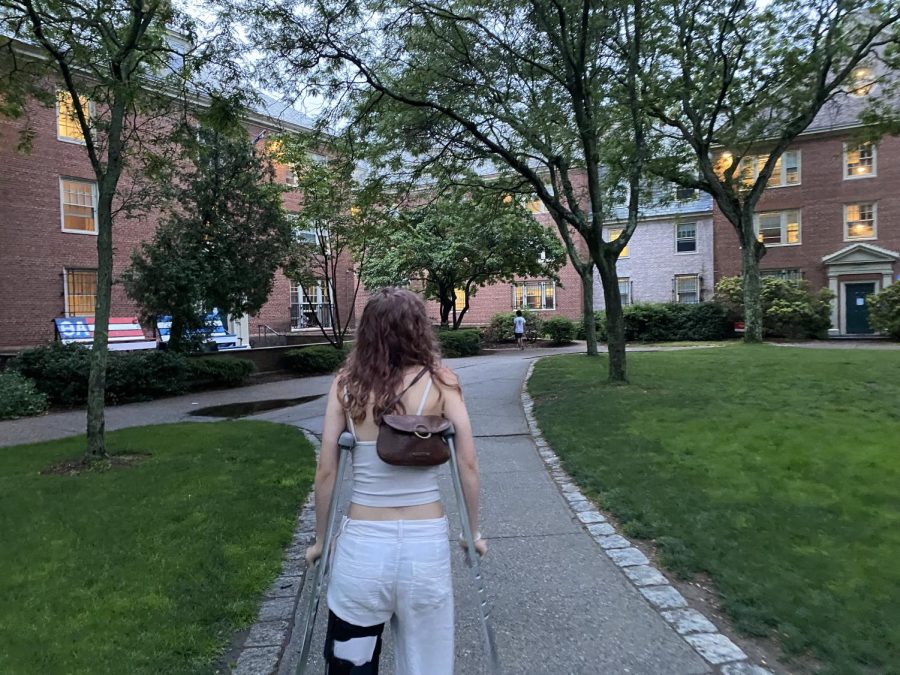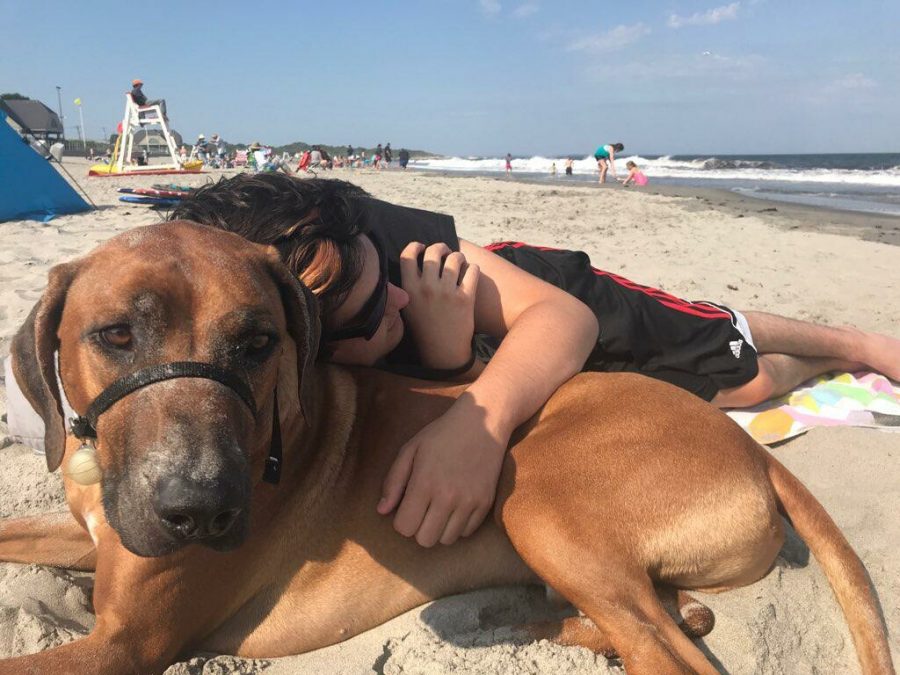New Service Dog Comes to NKHS
This tail is anything but far fetched
October 5, 2018
Sophomore Aidan Sullivan is a pretty typical teenager. He likes to play guitar, listens to punk rock, and enjoys spending time with his friends and family, his best friend Jack in particular. Jack’s pretty average, too. One thing stands out, though. He’s a service dog.
Jack is the new service dog at NKHS, and his primary purpose is to help Aidan, who uses a wheelchair, navigate through crowds. “You can be pretty invisible in a wheelchair,” Aidan said, “so he helps me get through crowds and stuff like that. So when people see this big beast walking through the halls, they sort of get out of the way.”
However, Jack is not the first fuzzy “beast” to roam the halls of NKHS. That would be Whitney, the therapy dog that works with school psychologist Ms. Paula Calitri to assist students and generally brighten student’s day. Calitri said, “She’s very loving, very accepting, and I think that automatically makes students feel comfortable.”
However, it is important that students understand that Whitney and Jack do not have same type of job. While Whitney is a therapy dog, and is here for the general student population of NKHS, Jack is only for Sullivan. According to Calitri, “A service dog is typically for one specific person, and when they’re working with that person, that work is not to be interfered with. A therapy dog is for anyone who wants to approach her, so she’s not for me, she’s for everybody, anybody, and it’s certainly fine for people to approach her and talk with her and pet her.”
Donna Sullivan, Aidan’s mother, was able to shed some further light on the differences. In an email, Mrs. Sullivan said, “They may not always look like they are doing something, but even just laying down in a designated spot waiting to be called upon is work. You will notice Jack is very vigilant and is always scanning and evaluating the activity around him.”
When service dogs are currently working, or in the process of training, they will have a vest on. When they are not currently working, they will not be wearing the vest, and that is when it will be ok to pet and interact with them.
Although Jack and Whitney have different purposes, the process for approval from the school committee was very similar. The Americans with Disabilities Act allows all service dogs in places that serve the public, like businesses, state and local government buildings, and nonprofit organizations, have to allow service animals in areas where the public has to go.
Although Aidan’s rights were protected by this, Mrs. Sullivan said that they still “had to provide all of Jack’s paperwork and health information, vaccines, etc. We also had to write a letter to introduce Jack to the district and give more information about him and the role he would be serving at school.” (This is normal procedure for service animals to be operating in public schools.)
However, just because Jack has a job to do, doesn’t mean he doesn’t like to play! Mrs. Sullivan said, “He can be quite goofy and fun. He loves to lie on the couch with Aidan and run around in the backyard and chase his tennis ball. He is super powerful and runs like a horse!”
However, he is still in the training process and has some rules. He is not allowed to leave the house without permission, and he has to follow behind humans on the stairs.
The positive impacts of service dogs and therapy dogs on students are beyond measure. Therapy dogs can provide emotional support, and brighten a students day. They can also bring students together. Calitri describes Whitney as a “magnet walking down the hall, and different students come over to pet her. And they start talking, and so she’s helping to form social connections.”
For those who ponder why students and staff alike can easily connect with therapy dogs, Calitri provides an answer. “I think she in particular looks like a teddy bear, and a lot of students have grown up with teddy bears, and they associate that with feeling calm, and love. I think kids are used to having teddy bears when they’re young, and she’s a more grown up version of that. She’s very loving, very accepting, and I think that automatically makes students feel comfortable.”
As for Aidan, despite missing some school last year due to surgery, he has been doing well, and plans to work in music after high school. He also comments about when Jack will be fully trained, saying, “ He’ll probably be a lot more confident here, once he gets settled in, he won’t have his tail tucked between his legs, and he’ll be pushing through crowds with no hesitation, and hopefully, he’ll be able to work as a mobility dog even here in loud places and crowds.”
Mrs. Sullivan sums up the benefits of service dogs best, saying, “Service dogs are truly incredible creatures who do so much for their humans.”
-34-






